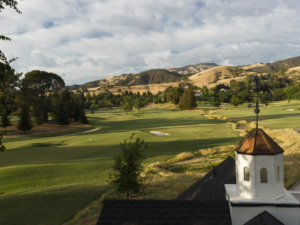May
Saving Water on Your Lawn and the Benefits of Natural Turfgrass
SAVING WATER………
Everyday we are reminded that we are in a drought situation. My last few blogs have been about this same subject, and I think it is important to continue with the topic.
The press is convinced that ripping out your lawn is the answer. But is it? No. You can have an environmentally beneficial lawn and use water wisely! Here are some more tips on how to save water while still keeping your lawn alive during our historic drought: Read the rest of this entry »
Comments Off on Saving Water on Your Lawn and the Benefits of Natural TurfgrassMay
Water Restrictions and Your Lawn. What Now? PART-2
So here we are, May of 2015, and for the first time in many of our lives we are being asked to cut our water usage by at least 25%. As I alluded to in PART-1 of using water wisely (please click here to read PART-1 if you have not already) many people view water consumption solely as an agricultural problem. It is easy to look at the percentages of water used by the agricultural industry and blame them for the water shortage, but have you considered that the real problem lies within us.
Did you know that over the past ten years the agriculture industry has lowered their water use rate from as much as 90% to less than 69% of total water consumed? Again many of you will look at the percentage of water used and say it is still too high, but the homeowner use rate has skyrocketed, while agriculture has learned to adapt and change.
Did you know the average family of four wastes 10,000 gallons of water a year waiting for hot water to arrive to their shower? Right there you can save 6% of your yearly water use. I know we’re supposed to be talking about landscape water rates, but more needs to be addressed than simply blaming one industry. I will be the first to tell you landscape water use rates need to go down. The average household wastes 16,000 gallons of water per year overwatering their landscapes. This is an additional 9% of your yearly water total being wasted. Today I will be giving you directions on how to not only save the 9% of overwatering, but I will also give you ways to save another 10% by watering smarter and using proper agronomic practices. I would be remised if I didn’t say this before I begin. Grass doesn’t waste water, people do. Read the rest of this entry »
Comments Off on Water Restrictions and Your Lawn. What Now? PART-2Apr
Water Restrictions and Your Lawn. What Now? PART-1
With the new water restrictions in California, I think now is a great time to revisit the proper way to irrigate your lawn. We have some say they will be taking out their lawns due to the water restrictions, but before you do so I think it is important to take everything into consideration.
We often see every issue in society as black and white, but there is always a grey area. We all take our own individual sides of an issue, but we need to take the time to find a middle ground. Just as is the case in the political spectrum one answer isn’t always correct. Two sides need to work together to come up with a way of solving our problems. Over the next week I will be writing a two part series on how to conserve water and have a great lawn at the same time. Read the rest of this entry »
Comments Off on Water Restrictions and Your Lawn. What Now? PART-1Nov
Water Saving Tips/College Football/Ultra Training
The month of December is a time of slow growth for your winter ryegrass. We won’t start to see the resurgence of growth until early February when the temperatures start to warm back up. Since we typically receive the majority of our harder frosts during December-February it is a great time to get outside and adjust your clock for the winter season. If you are still running a summer watering schedule on your lawn, or if you haven’t adjusted your clock since you overseeded now is the time to make some changes.  Read the rest of this entry »
Read the rest of this entry »
Nov
Which grass is “greener?”
Over the weekend I had several people wondering what the best option for grass is if they don’t want to overseed. There are a couple of choices. Read the rest of this entry »
Comments Off on Which grass is “greener?”


